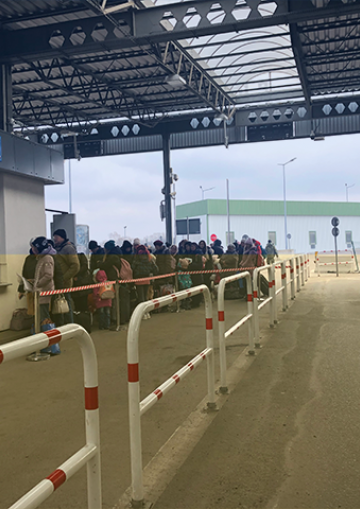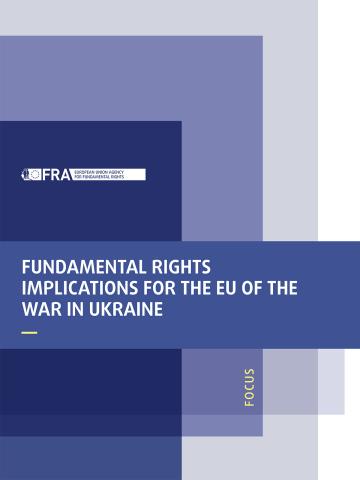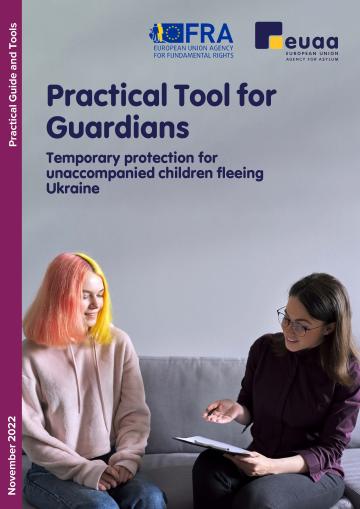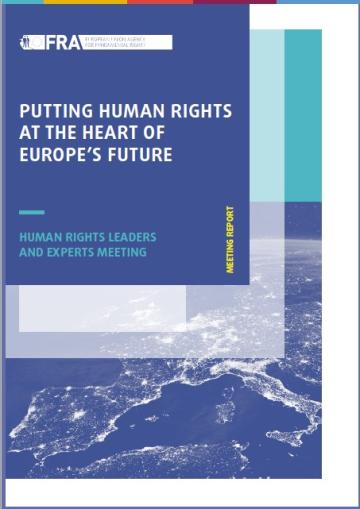During the field visits, it was observed how the affected EU countries address the fundamental rights challenges of the humanitarian crisis. These field visits also allow FRA to calibrate its advice to EU institutions and Member States.
A particular focus was on procedures at border crossing points and registration/reception centres or assistance points to support those fleeing the war.
FRA staff witnessed overwhelming support to everyone fleeing from Ukraine. People were not only formally accepted into the EU, but officials and volunteers assisted them with kindness.
Almost all people arriving in the EU are vulnerable or very vulnerable – pregnant women, infants, old people, single headed households and persons with disabilities.
This short report highlights in particular how the EU countries coped with the fundamental rights challenges regarding:
- reception;
- the risk of trafficking in human beings;
- passport controls at the border check points visited;
- next steps.
While most people fleeing the conflict want to go back to their home country as soon as possible, this may not be possible and their stay in the EU may become much longer.
Therefore, EU countries should now start planning ahead. This will require extensive relocations across the EU, as well as integration measures and policies at EU, national and local levels. These will need to consider:
- the impact of psychological trauma;
- the particular challenges facing the overwhelming majority of arrivals who are women, many with infants or young children, in accessing employment and finding childcare;
- family reunification;
- the specific needs of children;
- prevention and monitoring to avoid labour exploitation.
Background
Since the beginning of the war in Ukraine on 24 February 2022, a large number of people are fleeing the war and are seeking protection in the EU. As a first step, FRA dispatched a team composed of Agency staff to the EU countries bordering Ukraine and Moldova to observe and collect evidence on the evolving situation.
FRA staff on these field visits speak the national languages and have expertise in migration, child protection, equality and non-discrimination and Roma inclusion. The team reported daily to the EU mechanism for preparedness and crises management on migration (Migration Preparedness and Crisis Blueprint).
Country officials, such as police or border police, facilitated the work of FRA staff. They provided access to all areas at border crossing points, such as passport control facilities, first and second line checks, and CCTV monitoring rooms.
Moreover, national and regional authorities facilitated full access to Reception Points and other coordination centres for humanitarian assistance, as well as closed reception facilities that were close to border crossing points.
FRA collected information through observations and meetings with police and/or border authorities, local authorities, civil society actors, volunteers, staff of the European Border and Coast Guard Agency (Frontex) and international governmental organisations (UNHCR, UNICEF and IOM).
FRA staff also spoke with several Ukrainian nationals fleeing war, including Roma, and other non-Ukrainian third-country nationals.
FRA’s field visits to the border area took place between (3 and 14 March):
- Poland: Thursday 04/03 – Sunday 06/03
- Slovakia: Sunday 06/03 – Tuesday 08/03
- Hungary: Wednesday 10/03 – Friday 11/03
- Romania: Friday 11/03 – Monday 14/03









